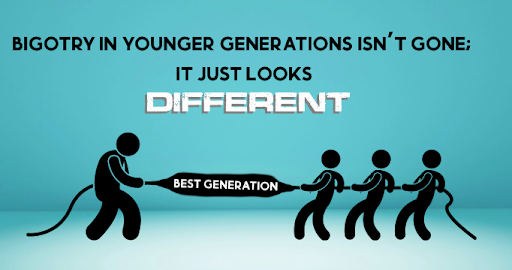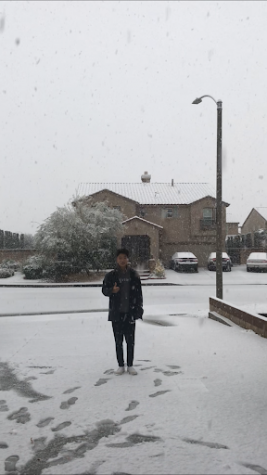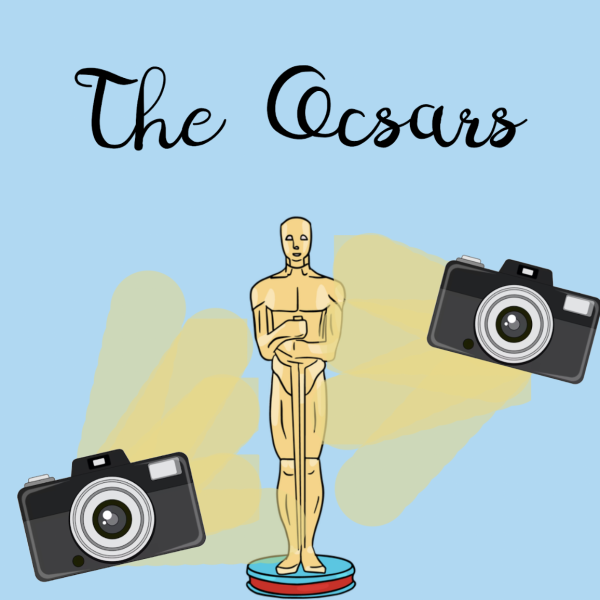Bigotry in Younger Generations Isn’t Gone; It Just Looks Different

Picture by Brandon Kim
People, including myself, often assume that this generation is exempt from ignorance and magically accepting of everyone. This fallacious utopia makes for a rude awakening when in the presence of bigotry.
For instance, I was recently scrolling through Tik Tok (like any self-respecting person) when I came across a typical sidewalk-interview style video. The setting was a college campus—BYU to be exact. The topic: openly gay couples. Disappointingly, the answers varied from allyship to ignorance, some students claiming they “need to do more research on the topic.” I mean, how much research do you need to do on respecting people? Naturally, I investigated further into the page.
The Tik Tok account “@blackmenaces” has tons of videos like this. It is run by several black students from BYU who have picked up on outdated views from fellow students and staff on campus. They began interviewing random students, asking questions like, “should gay people be allowed to date at BYU openly?” (which is against the college’s code of conduct, by the way) or a more simple, “do you have any black friends at BYU?” The results are baffling.
The account features dozens of viral videos, reaching upwards of 12 million views on some uploads. When scrolling through the comments section, the consensus amongst viewers is a simple, “disappointed but not surprised.” When I watched the first few videos, I was appalled. These college students cannot define and/or don’t believe in critical race theory, systematic racism, sexism, and the list continues. When asked if they identified as feminists, even the women said no. In general, the students’ answers were terribly disappointing.
There are two main types of answers. The first type is a well-educated student who can answer the questions asked by the interviewer. They generally have much to say on social justice issues and are clear activists on campus. Unsurprisingly, these people were often minorities. The second type of student is less exciting. They typically answer a brief “uhh, no, not really” to questions like “does white privilege exist?” Worse, when asked to elaborate on said answers, they simply say some differentiation of “I don’t know much about it” or, “I don’t have any firsthand experience with it; therefore, it doesn’t exist.”
In most cases, the issue at hand isn’t necessarily the students’ answers. It’s the fact that their justification is always an appeal to their ignorance. Students with more conservative answers generally had less to say on the topic—if anything at all. The most frustrating thing is that, more often than not, their justification is generally a nicer way of saying, “This issue isn’t even a real issue! I am not affected by it, so why should I care!”
Granted, I’m grateful that people are usually less loud and proud of their bigotry. However, this has deceived many people into believing that the world will be rainbows and sunshine in a few years. Just because we don’t see the hatred amongst younger generations doesn’t mean it’s not there. It’s just disguised behind years of learning that it’s not really “cool” to hate minorities in modern society. Instead, they wield their anger in their votes and meet with fellow “-ists” in private. Remember, we may not see everything so clearly now, but that doesn’t mean we don’t smell it in the air.
Bigotry is like burning toast. It lingers.

“To love the hibiscus, you must first love the monsoon” - Hala Alyan, “Thirty”
The past four years have felt like a monsoon. And now, as the clouds...

Hi, I’m Brandon. I’m the Multimedia editor of The Ubiquity, and my general role is to manage what goes on behind the scenes regarding article images....







